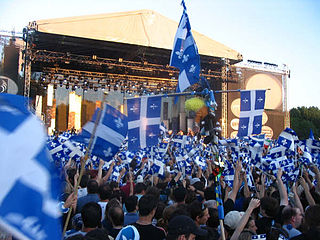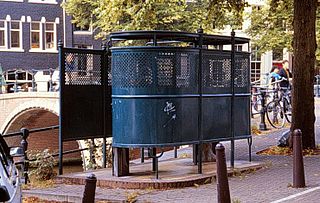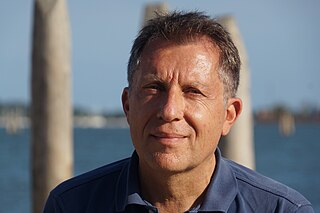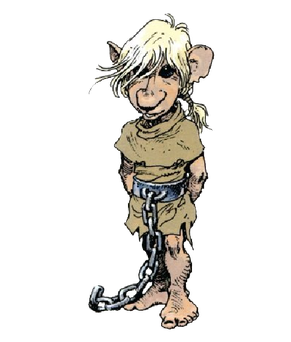Related Research Articles

Paul-Michel Foucault was a French philosopher, historian of ideas, writer, political activist, and literary critic. Foucault's theories primarily address the relationships between power and knowledge, and how they are used as a form of social control through societal institutions. Though often cited as a structuralist and postmodernist, Foucault rejected these labels. His thought has influenced academics, especially those working in communication studies, anthropology, psychology, sociology, criminology, cultural studies, literary theory, feminism, Marxism and critical theory.

Quebec nationalism or Québécois nationalism is a feeling and a political doctrine that prioritizes cultural belonging to, the defence of the interests of, and the recognition of the political legitimacy of the Québécois nation. It has been a movement and a central issue in Quebec politics since the beginning of the 19th century. Québécois nationalism has seen several political, ideological and partisan variations and incarnations over the years.

The History of Sexuality is a four-volume study of sexuality in the Western world by the French historian and philosopher Michel Foucault, in which the author examines the emergence of "sexuality" as a discursive object and separate sphere of life and argues that the notion that every individual has a sexuality is a relatively recent development in Western societies. The first volume, The Will to Knowledge, was first published in 1976; an English translation appeared in 1978. The Use of Pleasure, and The Care of the Self, were published in 1984. The fourth volume, Confessions of the Flesh, was published posthumously in 2018.

Henri Lefebvre was a French Marxist philosopher and sociologist, best known for pioneering the critique of everyday life, for introducing the concepts of the right to the city and the production of social space, and for his work on dialectical materialism, alienation, and criticism of Stalinism, existentialism, and structuralism. In his prolific career, Lefebvre wrote more than sixty books and three hundred articles. He founded or took part in the founding of several intellectual and academic journals such as Philosophies, La Revue Marxiste, Arguments, Socialisme ou Barbarie, Espaces et Sociétés.

Sociology of architecture is the sociological study of the built environment and the role and occupation of architects in modern societies.

The Order of Things: An Archaeology of the Human Sciences is a book by French philosopher Michel Foucault. It proposes that every historical period has underlying epistemic assumptions, ways of thinking, which determine what is truth and what is acceptable discourse about a subject, by delineating the origins of biology, economics, and linguistics. The introduction to the origins of the human sciences begins with detailed, forensic analyses and discussion of the complex networks of sightlines, hidden-ness, and representation that exist in the group painting Las Meninas by Diego Velázquez. Foucault's application of the analyses shows the structural parallels in the similar developments in perception that occurred in researchers' ways of seeing the subject in the human sciences.

Didier Eribon is a French author and philosopher, and a historian of French intellectual life. He lives in Paris.
Paul Veyne was a French historian, and a specialist of Ancient Rome. A student of the École Normale Supérieure and member of the École française de Rome, he was honorary professor at the Collège de France.

Heterotopia is a concept elaborated by philosopher Michel Foucault to describe certain cultural, institutional and discursive spaces that are somehow 'other': disturbing, intense, incompatible, contradictory or transforming. Heterotopias are worlds within worlds, mirroring and yet upsetting what is outside. Foucault provides examples: ships, cemeteries, bars, brothels, prisons, gardens of antiquity, fairs, Muslim baths and many more. Foucault outlines the notion of heterotopia on three occasions between 1966 and 1967. A lecture given by Foucault to a group of architects in 1967 is the most well-known explanation of the term. His first mention of the concept is in his preface to The Order of Things, and refers to texts rather than socio-cultural spaces.

The Birth of the Clinic: An Archaeology of Medical Perception, by Michel Foucault, presents the development of la clinique, the teaching hospital, as a medical institution, identifies and describes the concept of Le regard médical, and the epistemic re-organisation of the research structures of medicine in the production of medical knowledge, at the end of the eighteenth century. Although originally limited to the academic discourses of post-modernism and post-structuralism, the medical gaze term is used in graduate medicine and social work.

Michel Maffesoli is a French sociologist.
Geocriticism is a method of literary analysis and literary theory that incorporates the study of geographic space. The term designates a number of different critical practices. In France, Bertrand Westphal has elaborated the concept of géocritique in several works. In the United States, Robert Tally has argued for a geocriticism as a critical practice suited to the analysis of what he has termed "literary cartography".

Jean-Bernard Racine was a professor of geography at the Institute of Geography, Faculty of Geosciences and Environment of the University of Lausanne (UNIL) and at HEC Lausanne Business School. Racine received his first PhD in geography from the University of Aix-en-Provence (1965) and his State PhD in geography (1973) from the University of Nice. Jean-Bernard Bernard was a professor at the University of Sherbrooke between 1965 and 1969, and at the University of Ottawa from 1969 to 1973.

François (Robert) Ewald is a French philosopher. An assistant to Michel Foucault in the 1970s, he has overseen the publication of much of Foucault's literary estate. Ewald's own work has applied Foucault's notion of governmentality to a history of the welfare state.

Henry Bakis is professor emeritus of geography at the University of Montpellier. His research has mainly focused on industry, firms and ICT geography. One of his primary interests has been considering the articulation and the effects of electronic communication networks on territories and social networks.

Jacques Lévy is a professor of geography and urbanism at the School of Architecture, Civil and Environmental Engineering of the École Polytechnique Fédérale de Lausanne (EPFL). He is the director of Chôros Laboratory and of the Doctoral Program in Architecture and Science of the City. He is the cofounder of the scientific journal EspacesTemps.net. He published in French, along with Michel Lussault, the dictionary of geography and space of societies, Dictionnaire de la géographie et de l’espace des sociétés.He has contributed to in the epistemological and theoretical reform of geography as a science of the spatial dimension of the social, open to the social sciences and philosophy. Starting from political geography, he has most notably explored the city, urbanity, Europe and globalization. He works also for the introduction of non-verbal languages, especially audio-visual languages, at all levels of research. In 2013 he made a feature film, Urbanity/ies, which is intended as a manifesto for scientific film.
Mark Gottdiener was a professor of sociology at University at Buffalo, specializing in urban sociology. He is now Professor Emeritus.
Philippe Corcuff is a French academic, full professor in political science at the Institut d'études politiques de Lyon since October 1992 and member of the CERLIS laboratory since October 2003. Politically committed to the left, with a trajectory that took him from social democracy to pragmatic anarchism, via the ecologists and the New Anti-Capitalist Party, he defines himself as an “anti-globalization and libertarian activist”. He was a columnist for the French satirical weekly Charlie Hebdo from 2001 to 2004.
Michel Contini is a Sardinian, naturalized French linguist, researcher and academic.

Chninkel or The Great Power of Chninkel is a Franco-Belgian comic with the story written by the Belgian writer Jean Van Hamme and the art drawn by the Polish artist Grzegorz Rosiński. First published from 1986 to 1987 in black and white, and later republished in color and translated to several languages, it mixes the genres of fantasy, science fiction and Biblical parables. It follows the adventures of a diminutive humanoid J'on, who suddenly finds himself tasked with saving the world. It has been called one of the first graphic novels in the history of Franco-Belgian comics.
References
- ↑ Could Foucault have revolutionized Geography?, In: Space, Knowledge and Power, ed. by Jeremy W. Cramptonand Stuart Elden, pp. 31-33 (Chapter 14). Translated by Gerald Moore. Review of the book
- ↑ Francisco R. Klauser: Thinking through territoriality: introducing Claude Raffestin to Anglophone sociospatial theory, p. 106.